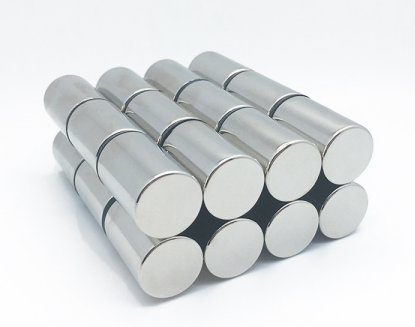
Do NdFeB strong magnets conduct electricity?
Before discussing the conductivity of NdFeB magnets, we first need to understand what conductivity is. In simple terms, conductivity is the ability of a substance to allow an electric current to flow through it. This ability mainly depends on the number and mobility of free electrons in the material. Under this premise, let's discuss the conductivity of NdFeB powerful magnets.

NdFeB magnet is a metal alloy, due to the characteristics of the metal itself, it has a certain conductivity. However, compared with common conductors such as copper and aluminum, the conductivity of NdFeB magnets is not outstanding. This is because although neodymium, iron, and boron are metallic elements, they do not have many free electrons, so they are less conductive.
It is worth noting that although NdFeB magnets have a certain degree of conductivity, we usually do not take advantage of this feature in practical applications. Instead, we pay more attention to the magnetic properties of NdFeB magnets. This strong magnetic material is mainly used in the manufacture of motors, generators, hard disk drives, MRI scanning equipment, etc. These devices work mainly by using electric current to generate a magnetic field, rather than using the conductivity of the magnet itself.
When we design and manufacture these devices, we use specialized conductors, such as copper and aluminum, to conduct electricity, and use the strong magnetic fields generated by neodymium iron boron magnets to convert or control electricity. Therefore, although NdFeB magnets have some conductivity, this is not the main reason we choose to use it.
In addition, NdFeB magnets are not very conductive, but this characteristic can become a problem in some cases. For example, if a magnet comes into direct contact with a conductive material, it may cause a short circuit or current leakage. Therefore, when using NdFeB magnets, we need to take some measures, such as wrapping them with insulating materials, to avoid this from happening.
In general, although the conductivity of NdFeB magnets is not strong, it still needs attention during use. We should fully understand and use its magnetic properties, but also pay attention to prevent possible electrical problems.
